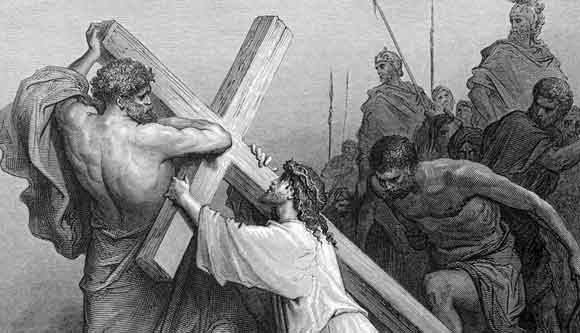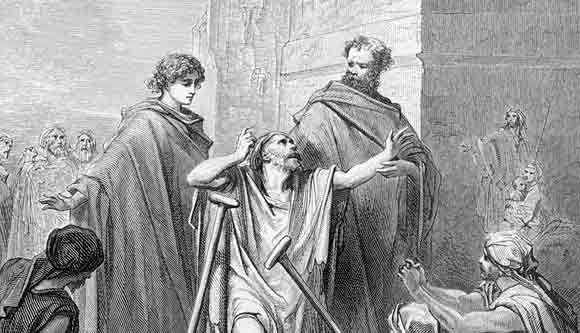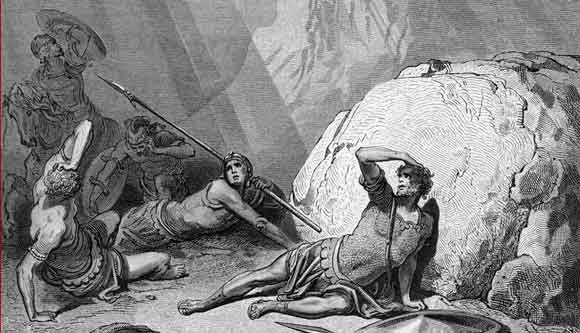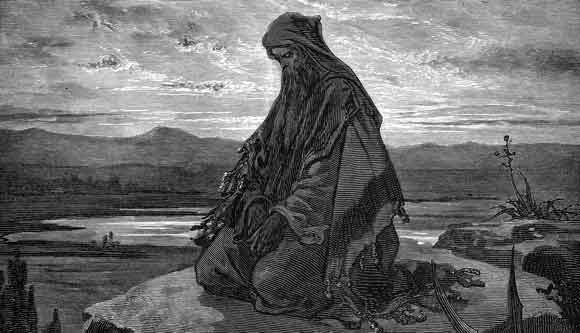When I was growing-up, I spent a lot of time at my grandmother’s house, and my constant companion was my younger cousin, Robert. I was a year and a half older, and considerably bigger, but Robert was far and away faster, and more athletic, and he could bear hug almost any tree, and make it to the first limb, and I could not. At times, this made our playing together problematic. This was especially so when decided to play “Batman and Robin.” I thought I deserved to be Batman, because Batman was older and bigger than Robin, and I was older and bigger than Robert. Robert thought he deserved to be Batman because he was more athletic than I was, and able to bear hug a tree, and climb high, and thus better able to attack super-villains from above.
Of course, neither of us wanted to be Robin because Robin was the sidekick. By definition the sidekick is not the center of attention, and small boys want to be the center of attention. That is why we, I mean they, talk so loud and bounce on all the furniture.
In retrospect, I don’t think Robert and I were fair to the whole concept of the sidekick. Our popular culture has given us lots of famous duos: Don Quixote and Sancho Panza; Tom Sawyer and Jim; The Lone Ranger and Tonto, the Cisco Kid and Poncho. Tarzan and Cheetah, or Jane, a choice, because the Tarzan movies had to appeal to both small boys, who were still members of the he-man woman haters club, and big boys who were starting to like girls.
There are sidekicks in Scripture, too. In the Old Testament Moses had Aaron, Elijah had Elisha, and David had Jonathan, who was known as, “the friend of David.” In the New Testament Peter’s first sidekick was his brother Andrew. During the time of Jesus’ ministry, he was often accompanied by James and John the sons of Zebedee, though, he of course, was the sidekick of Jesus. Then after the death and resurrection of Jesus, Peter spent time with John the son of Zebedee—his brother James being killed by the sword, and James the Brother of the Lord. Scholars believe there was tension between Peter and James, and evidence suggests they may have had a little competition over who was the leader and who was the sidekick. According to Matthew, near the end of his ministry Jesus chose Peter, and called him “Rock”, but James was “the brother of the Lord,” hewn from the same strata as Jesus himself. I am sure laws of the succession of kings came into play here. St. Paul is associated with a string of sidekicks, including Luke the Beloved Physician, and Demas who tragically deserted him, and Barnabas, and Silas, and Timothy, and Titus, and not a few others.
John Mark (Note: 1) is perhaps the leading sidekick of the New Testament, for he was sidekick of not one but two of the apostles. He was with Peter in Rome, and Peter regarded him as his “son.” (Note: 2) Likewise, during at least two different periods of his personal history, John Mark was a companion of Paul.
John Mark had broken time with Paul, and it may be that he had broken time because Paul and Barnabas were trying to decide which one of them was the leader and which was the sidekick.
According to Acts 13, the church at Antioch was fasting and praying, when a prophet, speaking by the Holy Spirit said, “Set apart for me Barnabas and Saul for the work to which I have called them.” Please note that Barnabas was mentioned ahead of Saul, perhaps because people in the church at Antioch remembered that Saul had recently been “a persecutor of the church.” Perhaps, because Barnabas was in Christ before Saul and welcomed him into the church. (Acts 4:46, Acts 9:27) Anyway, it appears that when Barnabas and Saul set out, Barnabas was in charge. They had John Mark with them to help. According to Colossians 4:10 John Mark was the cousin of Barnabas, and it follows that Barnabas had asked him along. Halfway through that First Missionary Journey two things happened. 1) In the text the name of Saul, now called “Paul” starts appearing before the name of Barnabas, perhaps because Paul was the more powerful preacher. Of course, there was still a tension there. In Acts 14:12 we read that certain Greeks called Barnabas. “Zeus.” Not insignificant because “Zeus” was the head of the Greek gods. The same Greeks called Paul, “Hermes,” because Paul was the chief speaker. As is often the case, the guy who does most of the talking ends up being thought of as the leader, and the other guy gets to be the sidekick. 2) We know from acts 13:12 that when the party neared Perga in Pamphylia, John Mark left them and returned home. We don’t know why John Mark went home. Perhaps he grew sick, or tired, or just lost interest, for he was still a young man, and the young are often restless. However, some scholars have suggested that it may be that John Mark went home because he did not like how Saul intentionally or unintentionally wrested leadership of the mission away from his cousin, Barnabas.
Now the plot thickens. When it came time to take a second Missionary Journey, Paul (now listed first and taking the initiative) says to Barnabas, “Come, let us return and visit the brothers (and sisters) in every city where we proclaimed the word of the Lord, and see how they are.” And Barnabas agreed. He follows Paul’s lead, but he asserts himself, too. He wanted to take with them John Mark. Paul did not like that. Paul thought it best not to take John Mark, because he had bailed out on them on the first Missionary Journey. The text of Acts 15:39-41 declares that “there arose a sharp contention” between Paul and Barnabas, and that Barnabas took Mark with him on his journey, and Paul took Silas with him on his journey. Therefore, we sing, “It was good for Paul and Silas, it was good for Paul and Silas, it was good for Paul and Silas, it is good enough for me.”
So who was right? Who was acting according to the will of God in this matter? Was it Paul, who rebuked Mark? Or was it Barnabas, who gave Mark a second chance? It may be that both men were right, and both acted accordance with the will of God, playing the part God wanted each to play, for perhaps John Mark need both the rebuke of Paul, and the second chance offered by Barnabas, that he might become the man God wanted him to be.
If you and I are going to become the people God wants us to be, we need a Paul and a Barnabas. We need a Paul. Charles Haddon Spurgeon said that, “One good critic is worth a thousand doting admirers.” Many times a good critic is one who loves us enough to give us 9 parts praise and 1 part criticism. We like those kind of critics. They are easier to embrace. But sometimes a good critic is the person who can’t stand us, or our behavior, and sometimes they are right! E. Stanley Jones said that God uses the opposition we get from others as sandpaper to knock off our own rough edges. Jesus said that God prunes the trees that bear fruit. Of course criticism is not enough. We need a Barnabas, too. We need someone to forgive us, and console us, and believe in us, and give us a fresh start. That is one reason why Jesus says that we are to forgive our brothers and sisters not seven times, but seventy times seven. He wants another chance for each of us. We learn from our mistakes and we go on.
John Mark made the most of his rebuke, and the most of his second chance. In Colossians 4:10, St. Paul greets the members of the church in Colossae, in the name of John Mark, who is with him in prison, though as a companion and not as a prisoner. We know this because Paul urges the church at Colossae to receive John Mark if he comes to them. In other words, he gives John Mark a letter of recommendation! Likewise in 2nd Timothy 4:11 St. Paul writes to his young friend Timothy saying, “Luke alone is with me. Get Mark and bring him with you; for he is very useful in serving me.” That to me sounds like a restoration of relationships!
We don’t know a lot about Mark the man. We know from the book of Acts that his mother was a widow who could afford a maid, and who had a house in Jerusalem that was big enough to host a large Christian gathering. (Acts 12:12) And we know from Acts that his mother, Mary, knew Peter, and the other apostles, including James. (Acts 12:12-17) We know about John Mark’s relationships with Barnabas, and Paul. And we know from 1st Peter 5:18 that John Mark was a companion of Peter and Rome. According to an ancient tradition (Note: 3) it was while John Mark was with Peter in Rome that he became Peter’s interpreter, and wrote down in the Gospel that bears his name, what he used to teach about Jesus.
Today, thanks to modern scholarship, we know that the gospels were a community project. But even a community project like the Gospel of Mark needs an inspiration, or an editor, and Mark may have served the Gospel that bears his name as inspiration, or as editor, or as both. (Note: 4)
Mark’s Gospel is my favorite for a number of reasons.
- I like it because it is short. Mark has 678 verses. Matthew has 1071, Luke 1151, and John 879.
- I like it because it is filled with action. In Mark, Jesus spends more time doing things, than talking about things. Mark is the gospel for people who like action more than talk, and most especially for people with ADD.
- I like it because it was the first gospel to be written down. We know this because both Matthew and Luke contain almost everything that is in Mark, not just thought for thought, but often word for word, and when either Matthew or Luke cease to follow Mark, the other one almost always does. Of course, Matthew and Luke have additional material that Mark does not. By the by, the person who opts to think that Matthew was written first then has to explain why Mark purposefully left out the story of the Virgin Birth.
- I like it because it has a high Christology. In Mark 1:1 we read, “The beginning of the Gospel of Jesus Christ, the Son of God.” That is not in the earliest manuscripts, but it exactly sums up the gospel. It is the perfect lead sentence. See especially the question about Jesus, the Messiah, being the son of David. (Mark 12:35-37)
Above all I like Mark because the author assumes that his readers already know something about the gospel. Mark frequently uses a literary device known as “dramatic irony.” That is, Mark writes knowing that those who read what he writes, often know more about the specifics of the story he is telling, than some of the people participating in the story. Consider these important examples:
In Mark 14:51 we read about a young man who followed Jesus when he was taken from the garden, wearing nothing but a linen cloth about his body. And the temple guards seized him, but he left the linen cloth and ran away naked. Why is this curious episode in the gospel? You and I don’t know who this young man was. Some scholars speculate that it was Mark. Alfred Hitchcock made a cameo in 39 of his 56 films; and, as great as Alfred Hitchcock was, few would argue that he was anymore skilled at telling a story than Mark. You and I don’t know who this young man was, but I would be willing to wager everything I have that the first people who heard this story told, or who read Mark’s gospel, or who heard it read, knew who this young man was. Perhaps they knew it was Mark?
In Mark 15:21 we read that a passerby, who was coming in from the country, Simon of Cyrene, the father of Alexander and Rufus, was compelled to carry the cross of Jesus. We don’t know much about Alexander and Rufus. (Note: 5) However, we can be sure that the first people who read Mark’s gospel knew who Rufus and Alexander were. Perhaps they were a part of the community, and contributed this information about their father. They were important to Mark and his community, but not to Matthew and Luke who omit their names in telling about their famous father.
Finally, consider the matter of the Resurrection of Jesus. I belong to those who believe that Mark’s gospel ends with verse 8 of chapter 16, as it does in all the oldest manuscripts. In Mark 16, the women have gone to the garden, early in the morning on the first day of the week, and they have discovered the empty tomb, with the stone rolled back. And in the tomb there is a young man, dressed in white, who says to them:
“Do not be amazed; you seek Jesus of Nazareth, who was crucified. He has risen, he is not here; see the place where they laid him. 7 But go, tell his disciples and Peter that he is going before you to Galilee; there you will see him, as he told you.”
The gospel concludes by saying that they went on their way, but “they said nothing to anyone, for they are afraid.” Some object that this is no way to end a gospel. They say that Mark simply had to list at least one appearance of the Risen Christ, and insist that the true ending of Mark must have been lost. I disagree. I think Mark is once more using dramatic irony. He is writing to people who already know that the Lord has risen, and he is allowing them to enjoy knowing what the women in the story of the empty tomb do not yet know, that the Risen Christ did indeed appear to his disciples, and later to at least one of the women, Mary Magdalene.
I love Mark’s way of saying just enough. A psychologist would say that Mark speaks with a reserve ordinarily possessed only by a person of supreme confidence. And why shouldn’t Mark have confidence? Mark was the sidekick of not one, but of two, or more, of the apostles of Jesus. Those apostles stood face to face with the risen Christ, and Mark walked step by step with them. Mark was not a disciple of the Lord, but he was the disciple of those who were. No doubt Mark often looked across a room, small or large, and stared at Peter, or Paul, or perhaps another of the apostles, whether in his mother’s home in Jerusalem, or in a house, or a prison cell in Rome, and asked, “Won’t you tell me, just once more, about what it was like to stand in the presence of our Risen Lord?”
I don’t know about you—but when I dig deep into these scriptures, and see how the heroes and heroines of the Bible were interconnected, I sense another presence, a presence that goes way beyond a description on a page. I believe it is the presence of the Risen Christ who seeks us, and calls to us, and often pursues us on our way, saying, “All good things flee Thee, when Thou fleest me.”
Finis
Note 1: John was his Jewish name, and Mark his Roman name.
Note 2: We know this from 1st Peter 5. Some scholars think that Peter was not the author of the epistles that bear his name, others insist he wrote both, still others that he wrote 1st Peter but not 2nd Peter. At the very least 1st Peter contains a very ancient tradition of Mark being in Rome with Peter.
Note 3: About the origins of the Gospels, Papias (as quoted by Eusebius) quoting John the Elder wrote: `And this the Presbyter used to say [this is in the plural implying John the Elder would employ this argument multiple times in defense of Mark’s Gospel]: “Mark, being the recorder of Peter, wrote accurately but not in order whatever he [Peter] remembered of the things either said or done by the Lord; for he [Mark] had neither heard the Lord nor followed him, but later, as I said, Peter, who used to make teachings according to the cheias, [a special kind of anecdote] but not making as it were a systematic composition of the Lord’s sayings; so that Mark did not err at all when he wrote certain things just as he had recalled [them]. For he had but one intention, not to leave out anything he had heard, nor to falsify anything in them.”
Note to Note 3: There are problems with this tradition in the sense that Mark is not nearly as adoring of Peter as Matthew. However, there is much to be learned from it if only we treat it as commentary. It is a wonderful window into the process of the oral tradition and this short saying deserves much study. WNG
Note 4: The 2nd Gospel does not name its author. The name Mark was first associated with the gospel by the Papias tradition.
Note 5: In Romans 16 St. Paul mentions “Rufus eminent in the Lord.” There is no sure connection, but it is interesting to speculate that this Rufus at least was a part of Mark’s community in Rome, if that is where it was located. Scholars point out that Mark is a rural gospel—but he may simply be remembering the way things were in the days when Peter followed the Son of Man who had no place to lay his head.
Illustration: Simon of Cyrene, the father of Alexander and Rufus, carries the cross of Jesus Mark 15:21. From the Dore Gallery of Bible Illustrations which are in the Public Domain.












